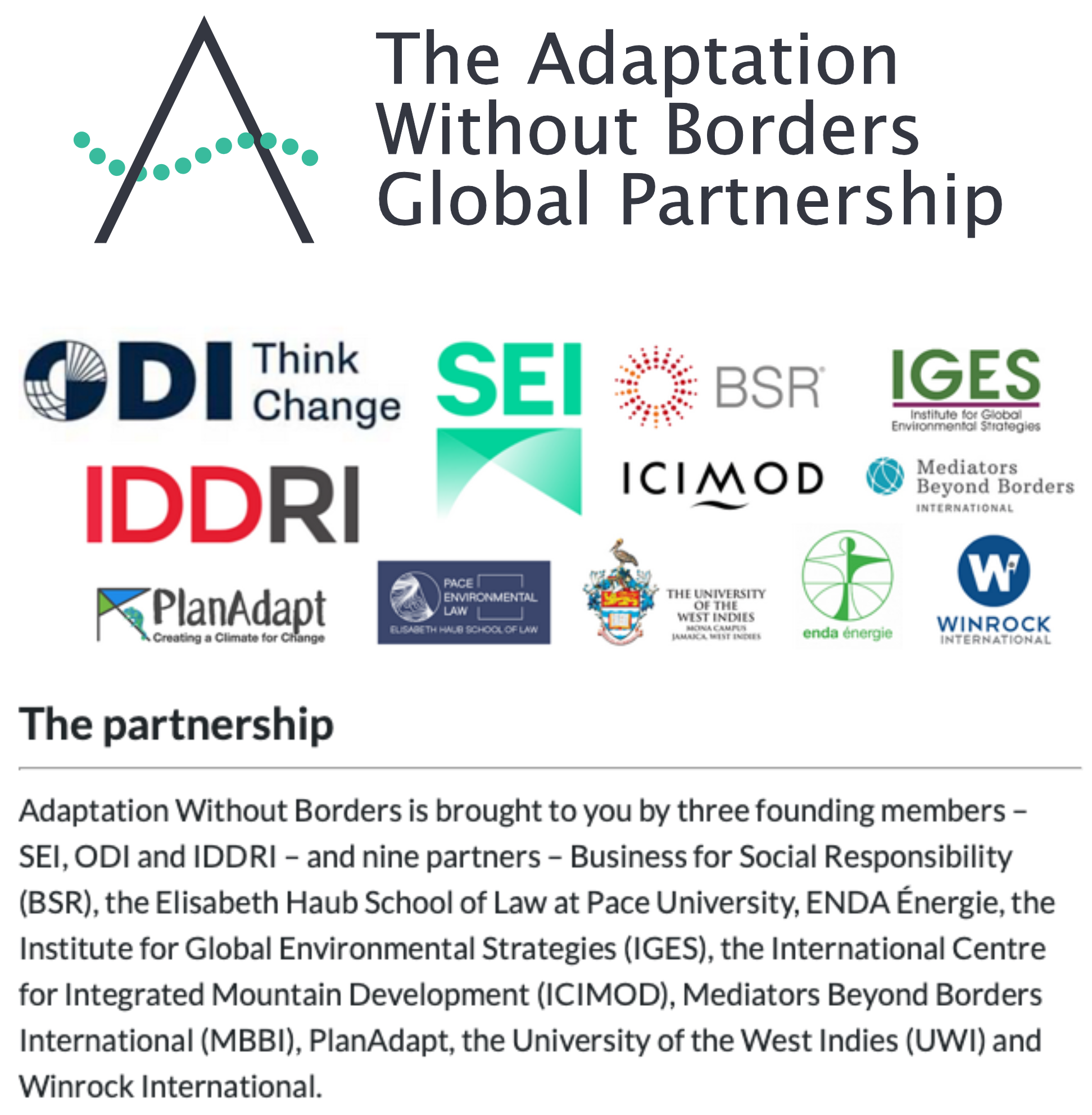REPLAY
Download the presentations (slides) of the speakers [PDF]
The world’s economies, societies and ecosystems are deeply interconnected, and climate shocks can cascade across countries and continents, sectors and systems.
This webinar discussed key findings from the Adaptation Without Borders’s first flagship report. The report provides new evidence on ten transboundary climate risks of global importance that affect critical sectors and regions: from water resources in high mountain environments, to fish stocks in the open ocean, industrial supply chains, and energy and global finance systems, as well as human health, livelihoods, mobility patterns, and physical and mental well-being.
Authors of four chapters (on terrestrial resources, energy, finance and livelihoods) set the scene for a discussion on the policy implications of these systemic risks, and on the need for global cooperation on adaptation.
Programme
- Moderator: Richard J.T. Klein, Senior Research Fellow, Stockholm Environment Institute, Sweden
- 11:00–11:15 Introduction and presentation of the 2023 Global Transboundary Climate Risks Report
- Introduction: Katy Harris, Senior Policy Fellow, Stockholm Environment Institute, Sweden
- Presentation of the report: Ariadna Anisimov, Research Fellow, Institute of Development Policy, University of Antwerp, Belgium, and Alexandre Magnan, Senior Research Fellow, Institute for Sustainable Development and International Relations, France
- 11:15–11:45 Four chapters
- Shared river corridors in mountain regions: the case of the Hindu Kush Himalaya – Jakob Steiner, Fellow Himalayan University Consortium (HUC/ICIMOD), Nepal, and University of Graz, Austria
- Interconnected energy systems: Tropical cyclones on the east coast of Africa - Jinsun Lim, Policy Analyst, International Energy Agency
- Transboundary climate risks and health: a deep dive on infectious diseases – Kristine Belesova, Senior Lecturer in Global Population Health, Imperial College London
- Cross border risks to livelihoods – Sarah Opitz Stapleton, Research Associate, Overseas Development Institute, UK
- 11:45–12:15 Q&A
- 12:15–12:35 Implications for policy and practice
- H.E. Aminath Shauna, Maldives’ Minister of Environnement, Climate change and Technology [vidéo]
12:35–12:55 Q&A
12:55–13:00 Conclusion: Katy Harris, Senior Policy Fellow, Stockholm Environment Institute, Sweden









